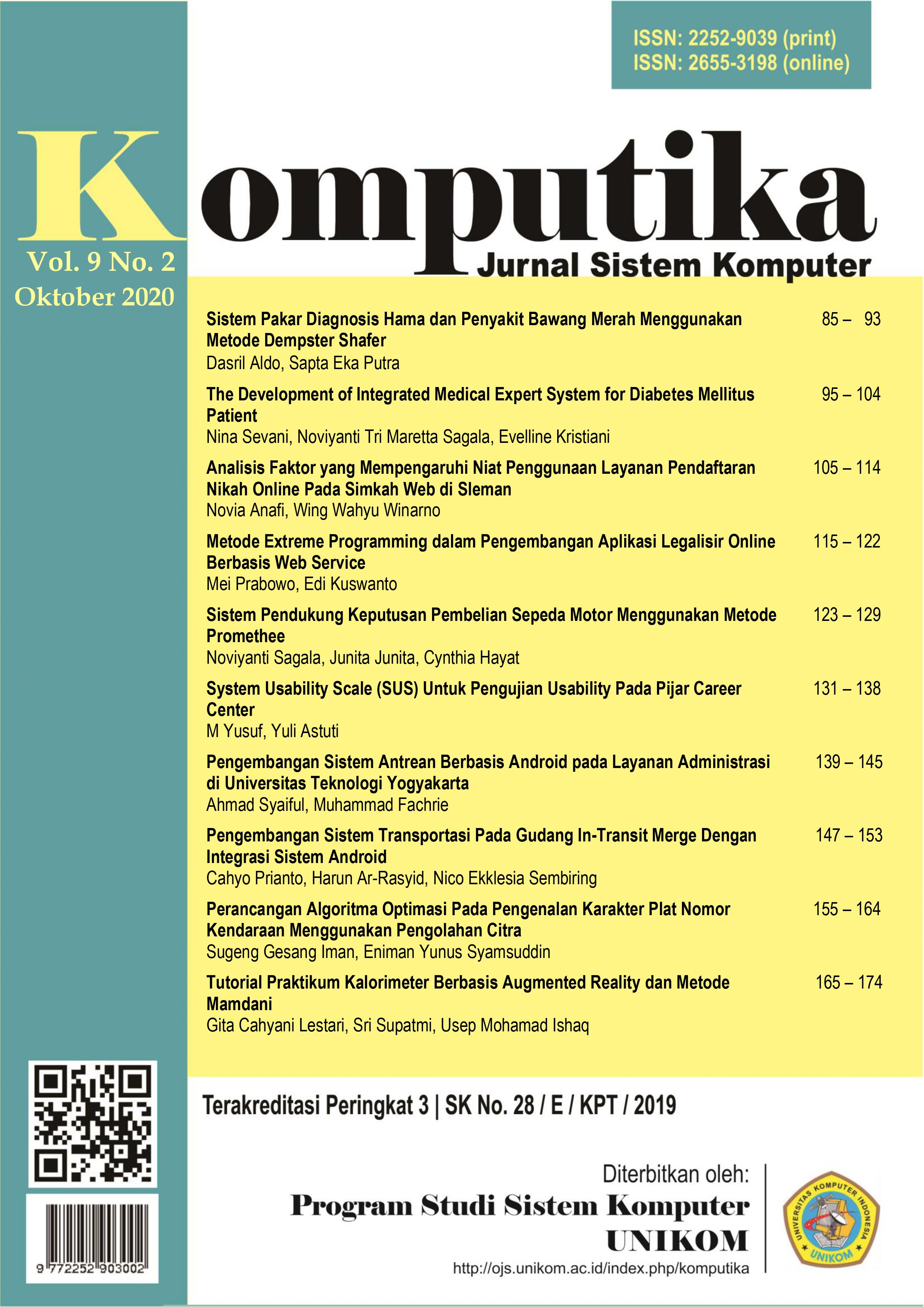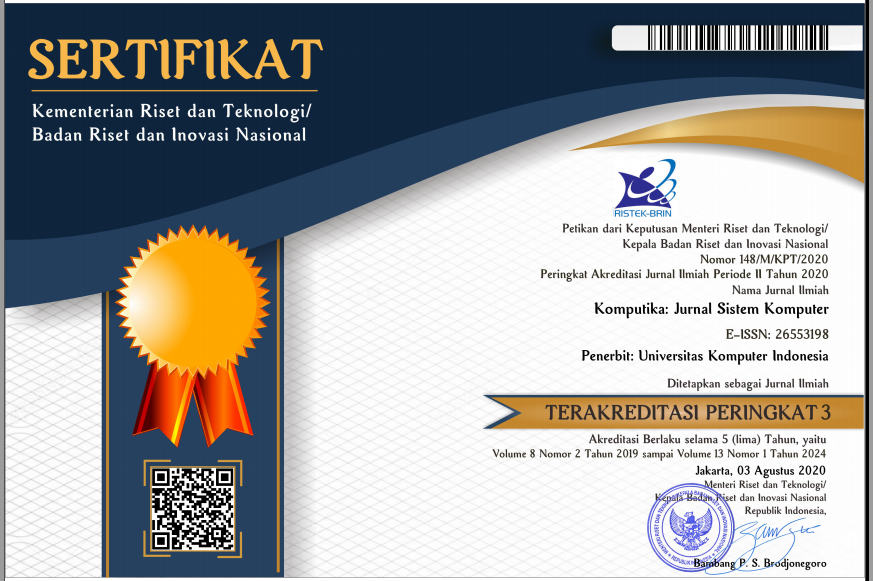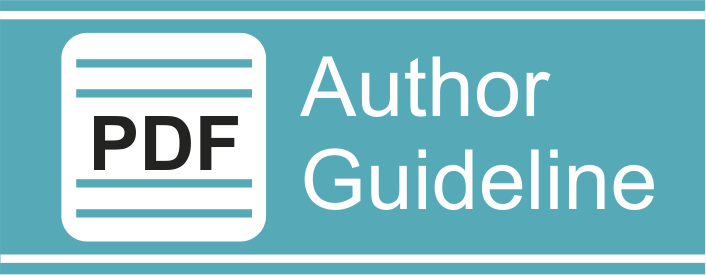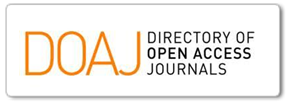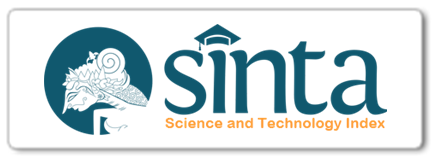Analisis Faktor yang Mempengaruhi Niat Penggunaan Layanan Pendaftaran Nikah Online Pada Simkah Web di Sleman
DOI:
https://doi.org/10.34010/komputika.v9i2.2929Abstract
E-government services or systems aim to improve the quality of services, enabling time and effort savings in government administration. The use of e-government services is not limited to the millennials, but also the people who were laymen of a system. Besides, millennials who sometimes still use information from parents or others who have used the previous system can use the information to miss the benefits of the system that has been done online so that the effort to use the system is low. This research is about online marriage registration services on the Simkah web application owned by the Ministry of Religion of the Republic of Indonesia because there are still many prospective brides or people who have not used the online service. The model used is to combine the Unified Theory of Acceptance and Use of Technology 2 (UTAUT2) model and the modified IS DeLone and McLean (D&M) success model and consider moderating age, gender, and internet experience. In this study, it is necessary to know whether the constructor factors in the UTAUT2 model and the D&M model influence the intention to use online marriage registration services. The study was conducted in Sleman Regency. The construct finding that affects the intention to use online marriage registration services is hedonic motivation so the Ministry of Religion needs to increase hedonic motivation or mean it as an impulse in someone to use something.

